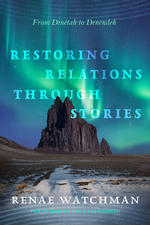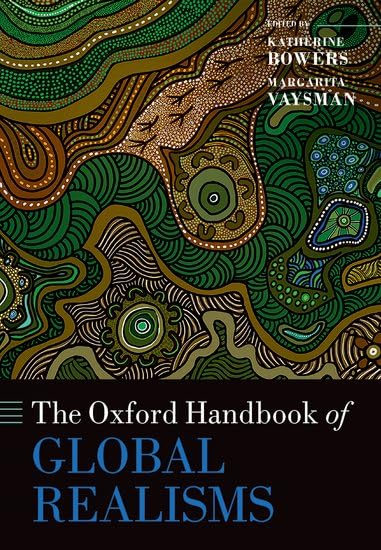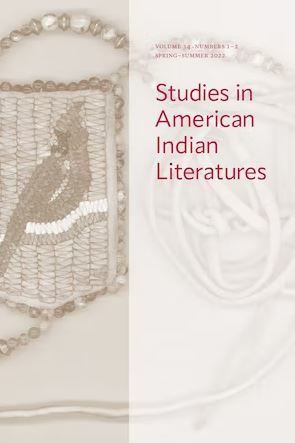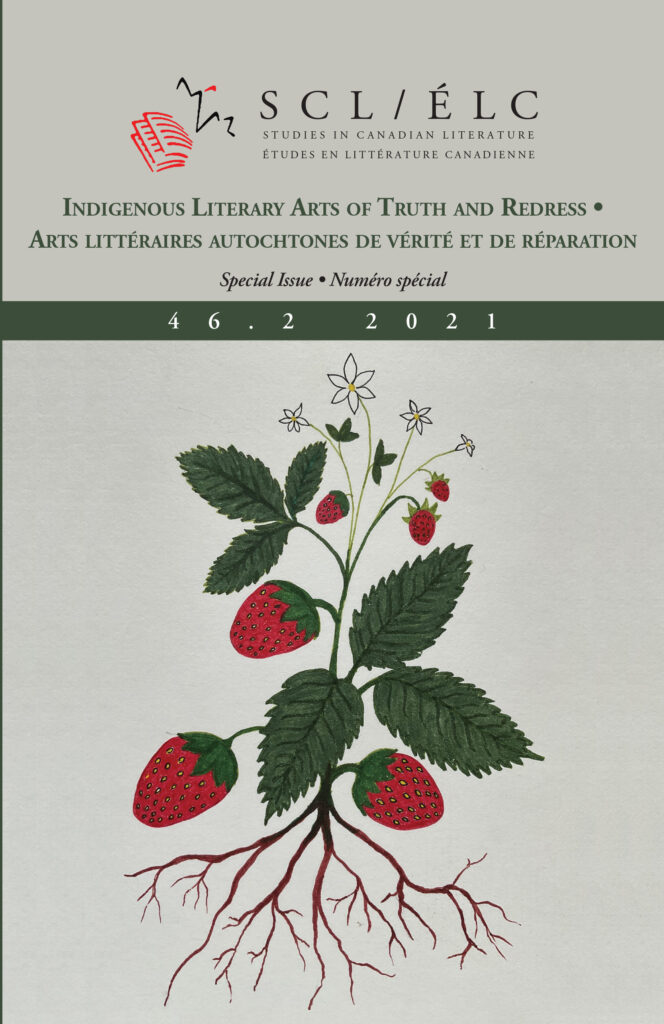
McMaster University | Indigenous Studies
| Research Areas: Indigenous Literatures; Indigenous Film |
Renae Watchman is a citizen of the Navajo Nation (Shiprock agency) in New Mexico. She is Bitter Water Clan, born for the Towering House Clan. Her maternal grandfather was Cherokee from Tahlequah, Oklahoma, and they are Tsídii (Bird Clan). Her paternal grandfather was from the Red Running Through the Water Clan.
Watchman is an associate professor of Indigenous Studies. Her teaching and research interests are in Indigenous literary and expressive arts, Diné analytics, and transnational collaborations. She is the author of Restoring Relations Through Stories: from Dinétah to Denendeh (2024, University of Arizona Press and University of Regina Press) and co-editor with Hartmut Lutz and Florentine Strelczyk of Indianthusiasm: Indigenous Responses (2020, Wilfrid Laurier Press). She is the 2025-2027 Faculty of Social Sciences “Scholar-In-Community,” as well as the McMaster Indigenous Research Institute (MIRI)’s DMH “Community Fellow.” In 2024, Watchman was selected as an Obama Fellow for the Obama Institute, housed in Transnational American Studies at Johannes Gutenberg University in Mainz, Germany. She will be a Distinguished Mercator Professor at the University of Potsdam in Spring 2026.
Watchman’s case study is tentatively on the topic of “Extracting Indigeneity.” It explores how literary Wonderworks (Justice) by Indigenous writers and filmmakers imagine belongingness, kinship, languages, and happiness in worlds that are dystopic and dying. This study seeks to understand how extracting Indigeneity, which necessitates confronting Indigenous identity politics, is at once ironic and necessary for the survival of human and other than humankind across Turtle Island. On July 19, 2025, Watchman was invited to deliver a keynote, and she presented a draft that stems from Racialized Ecologies, called “Winterless Stories: Protocol Pivots Amid the Indigenous Polycrisis.” This was for the annual international summer school, North American Narratives of Crisis and Repair, Past and Present, hosted by the Bavarian American Academy. Watchman is currently revising the work for future publication.
Selected Publications

Watchman, Renae. Restoring Relations Through Stories: From Dinétah to Denendeh. University of Arizona Press, 2024.
Watchman delves into land-based Diné and Dene imaginaries as embodied in stories—oral, literary, and visual. Like the dynamism and kinetic facets of hózhǫ́,* Restoring Relations Through Stories takes us through many landscapes, places, and sites. Watchman introduces the book with an overview of stories that bring Tsé Bitʼaʼí, or Shiprock Peak, the sentinel located in what is currently the state of New Mexico, to life. The book then introduces the dynamic field of Indigenous film through a close analysis of two distinct Diné-directed feature-length films, and ends by introducing Dene literatures.

Watchman, Renae. “Indigi-realism and ‘Aye!’sthetics.” The Oxford Handbook of Global Realisms, edited by Katherine Bowers and Margarita Vaysman, Oxford UP, 2024, pp. 205–22.
In this chapter, Watchman turns to Diné concepts and overall Indigenous community features (language, accessories, and epistemologies) to demonstrate that Indigenous televisual stories are restorative and evocative of Indigi-realism through Indigenous “ ‘Aye!’sthetics” as storytelling autonomy. “Aye!”sthetics fuses the Turtle Island Indigenous utterance “Aye!” that expresses joking and joy with the beauty and autonomy of on-screen presence and Indigenous existence.

Watchman, Renae. “Teaching Indigenous Film through an Indigenous Epistemic Lens.” Studies in American Indian Literatures (SAIL) Special Double Issue: How We Teach Indigenous Literatures edited by Michelle Coupal and Deanna Reder, vol. 34, numbers 1-2, Spring-Summer 2022, pp. 112-134.
Watchman analyzes the course content and assignments of her three-credit course, Indigenous Film: “From Hollywood to the Fourth World,” taught at the second-year and third-year levels, which introduce students to global Indigenous film studies.

Watchman, Renae. “Igniting Conciliation & Counting Coup as Redress: Red Reasoning in Tailfeathers, Johnson, and Lindberg.” Studies in Canadian Literature, special issue of “Indigenous Literary Arts of Truth and Redress,” edited by Cynthia Sugars and John Ball, vol 46, issue 2, May 2022, pp. 213-233.
Watchman focuses on Indigenous women and their truths as they use “Red Reasoning” to respond to violent colonial structures and relationships. Watchman discusses the film A Red Girl’s Reasoning, Lindberg’s novel Birdie, counting coup for conciliation undertaken by Indigenous women for missing and murdered Indigenous women and girls, and community-led conciliatory action as a model for redress and ultimately restorative justice.

Watchman, Renae, et al. “Building Transdisciplinary Relationships: Indigenous and German Studies.” Seminar : a Journal of Germanic Studies, vol. 55, no. 4, November 2019, pp. 309–27.
The special issue maps the divergences between Indigenous Studies and German Studies that have kept them separate and includes essays that identify their convergences and the development of transdisciplinary and potentially decolonizing relationships.
